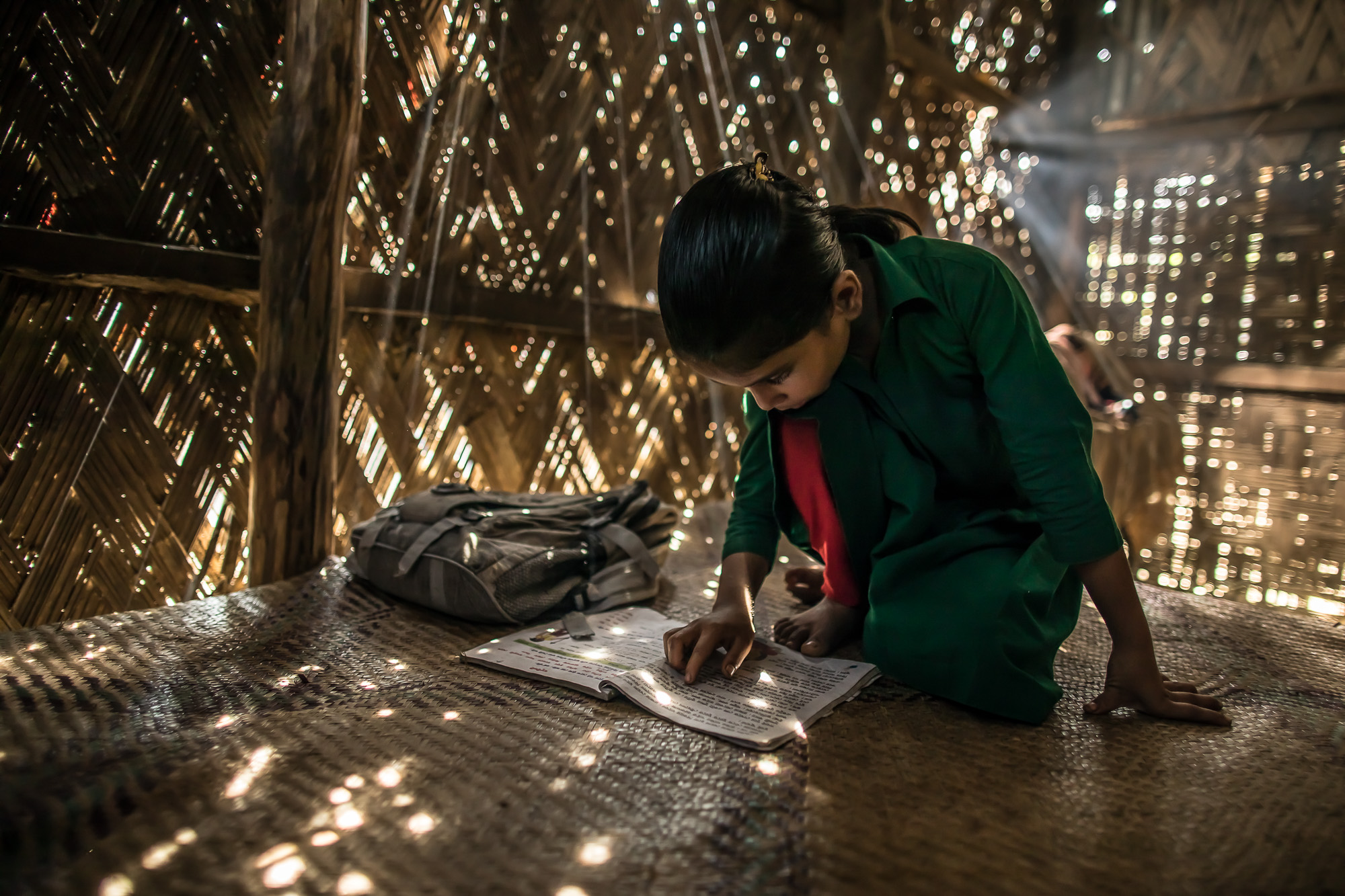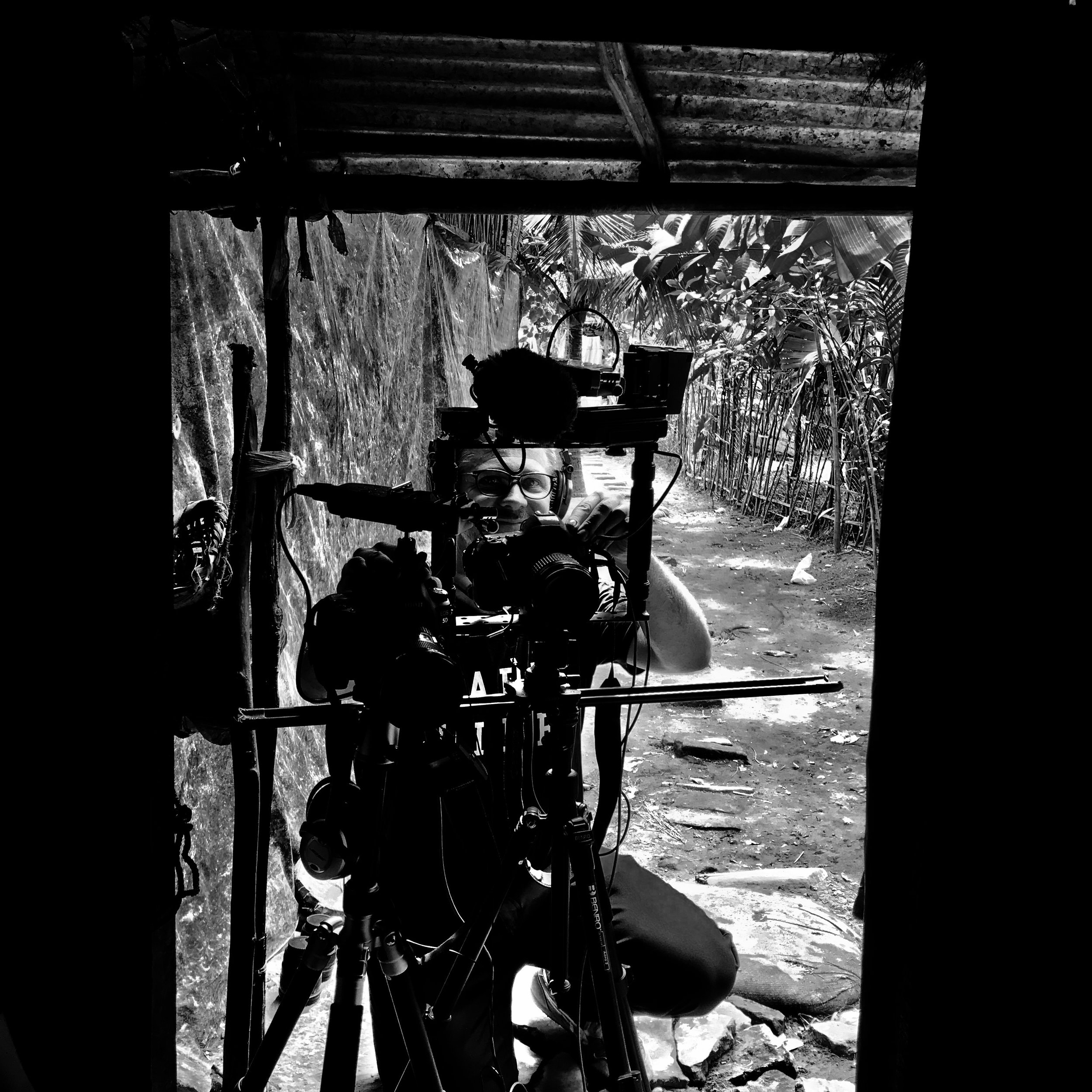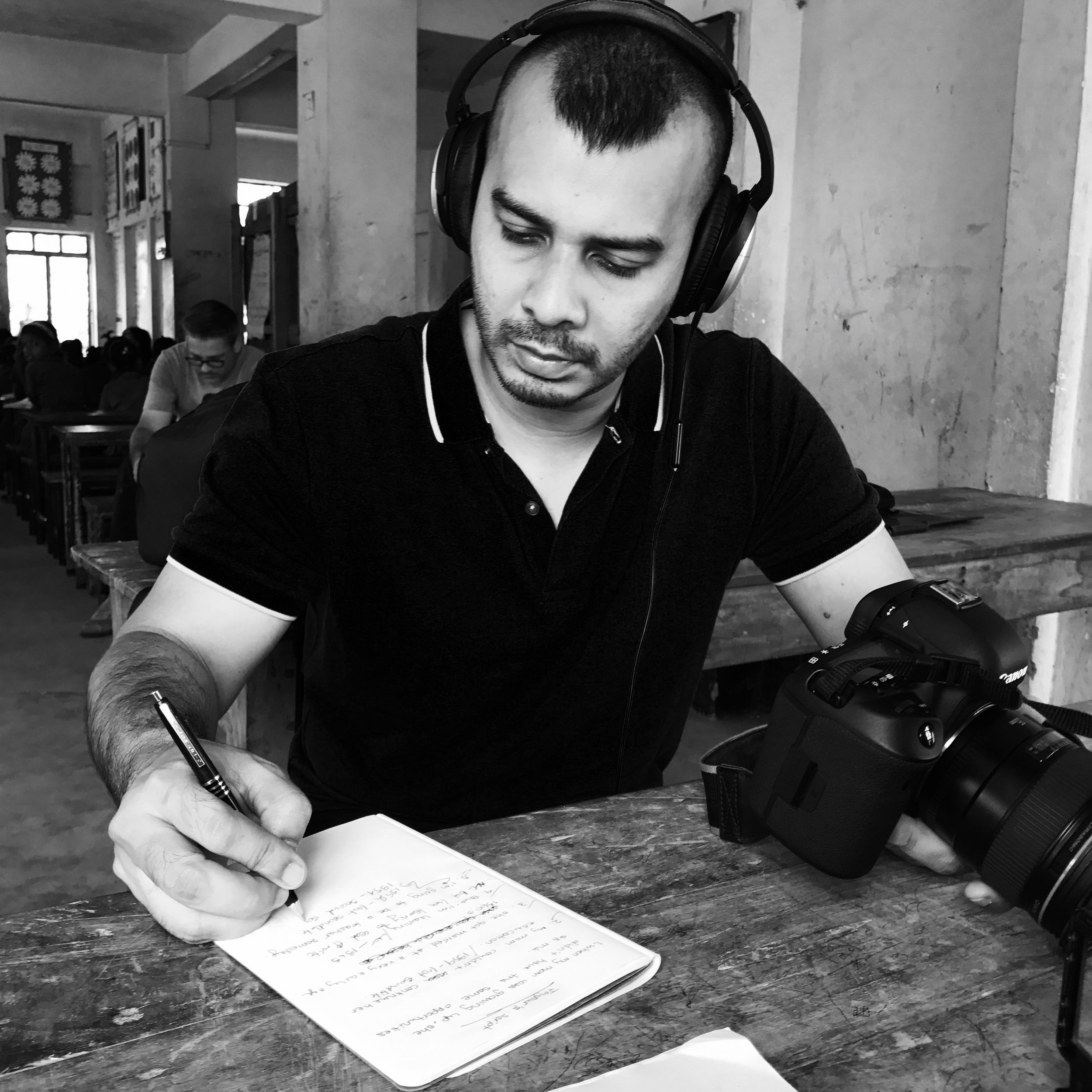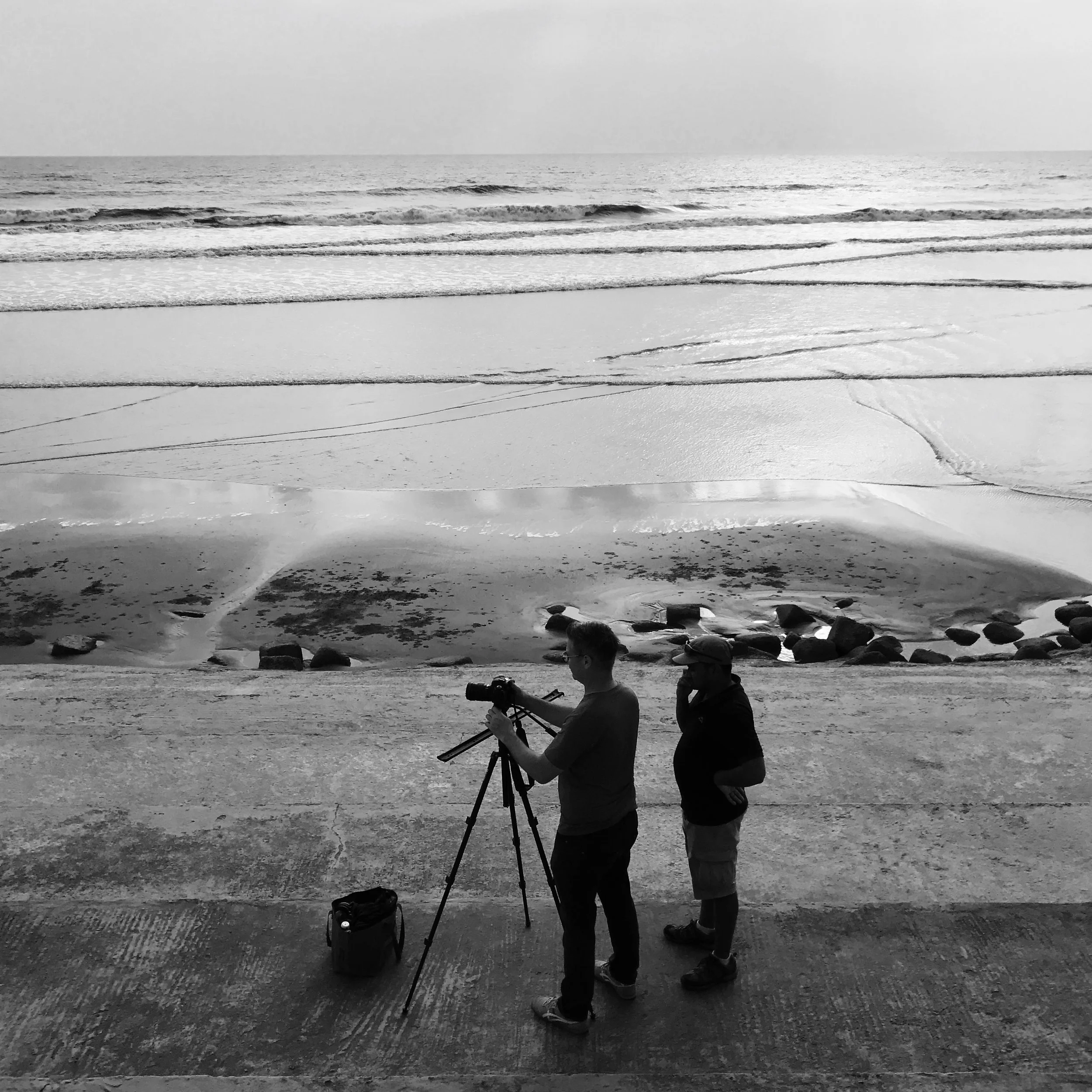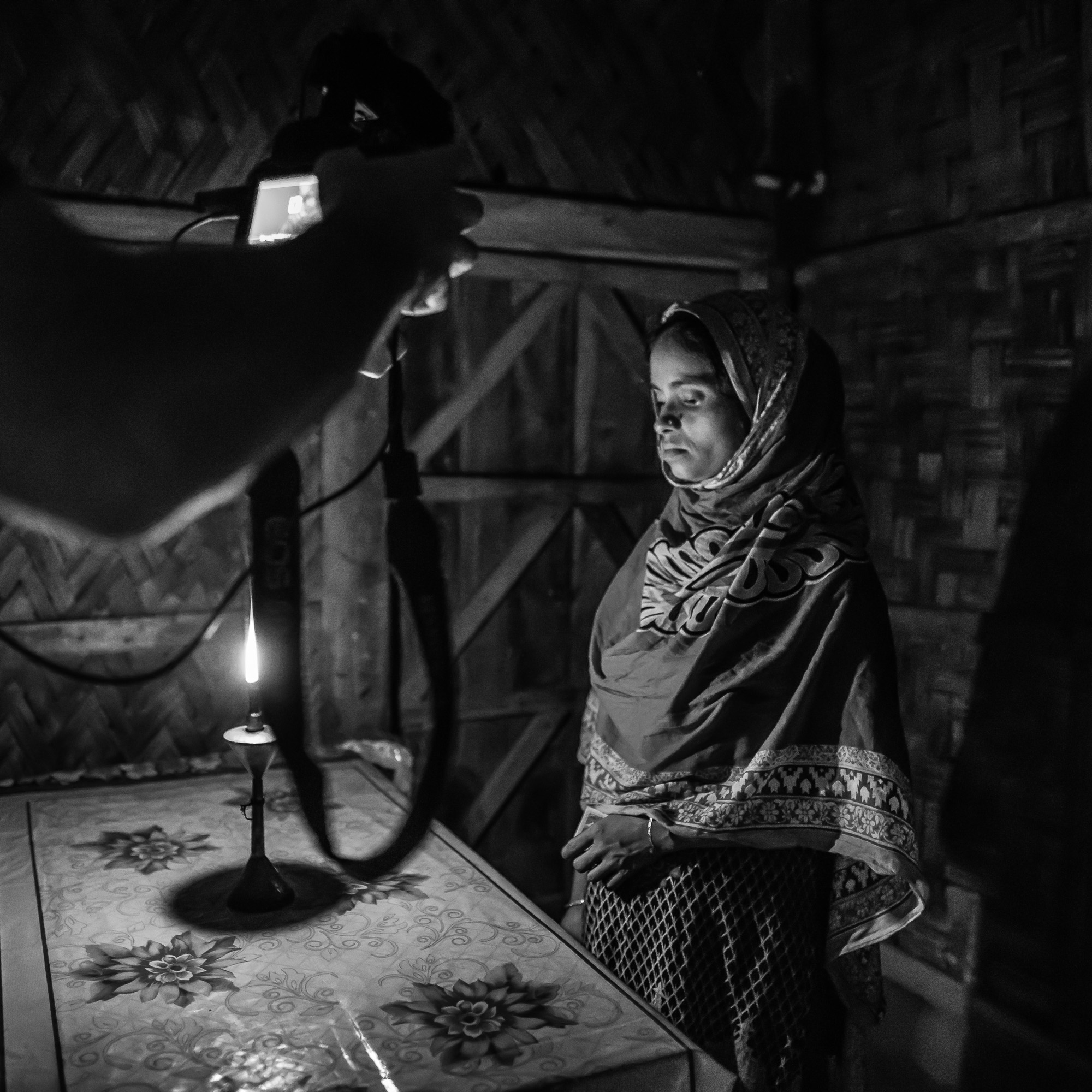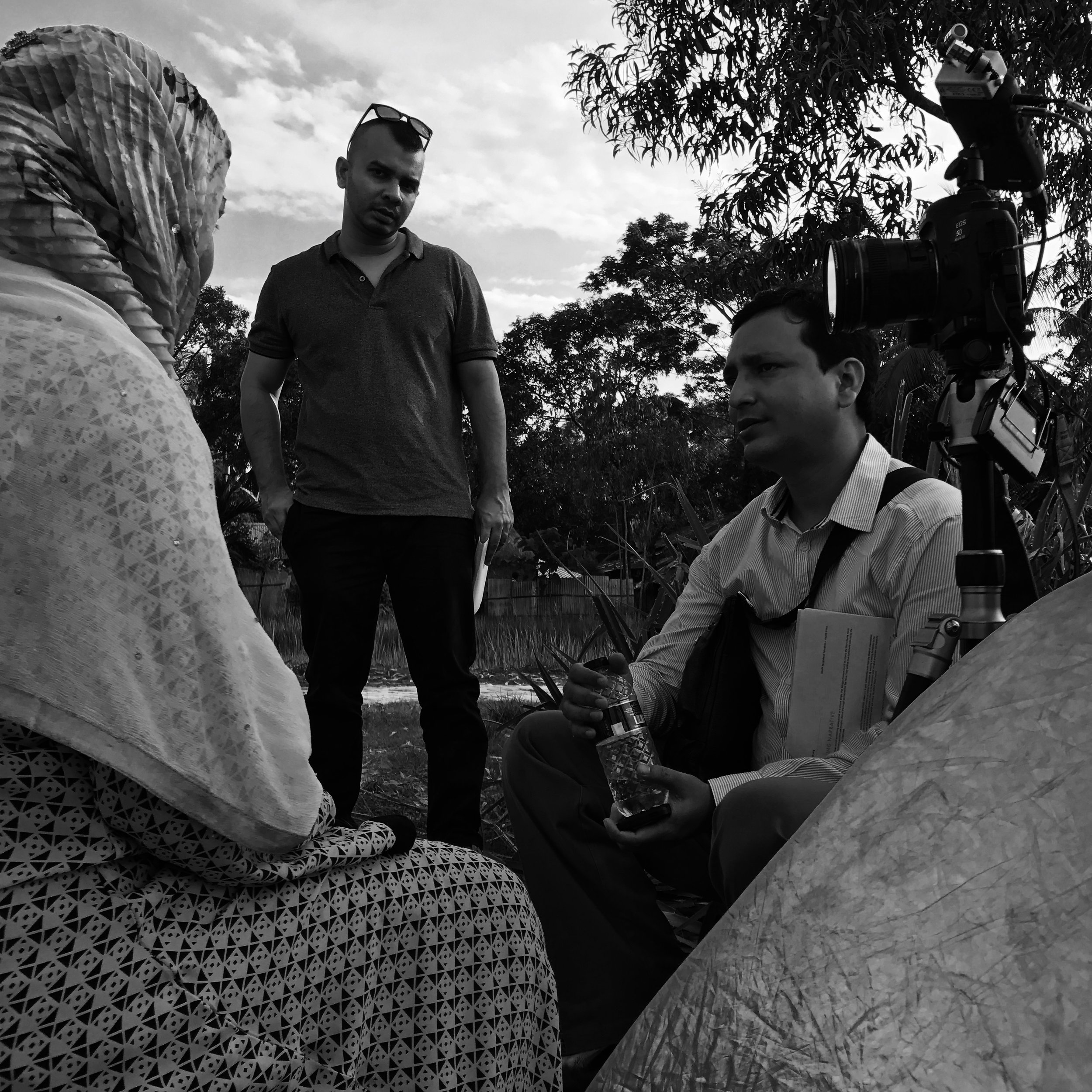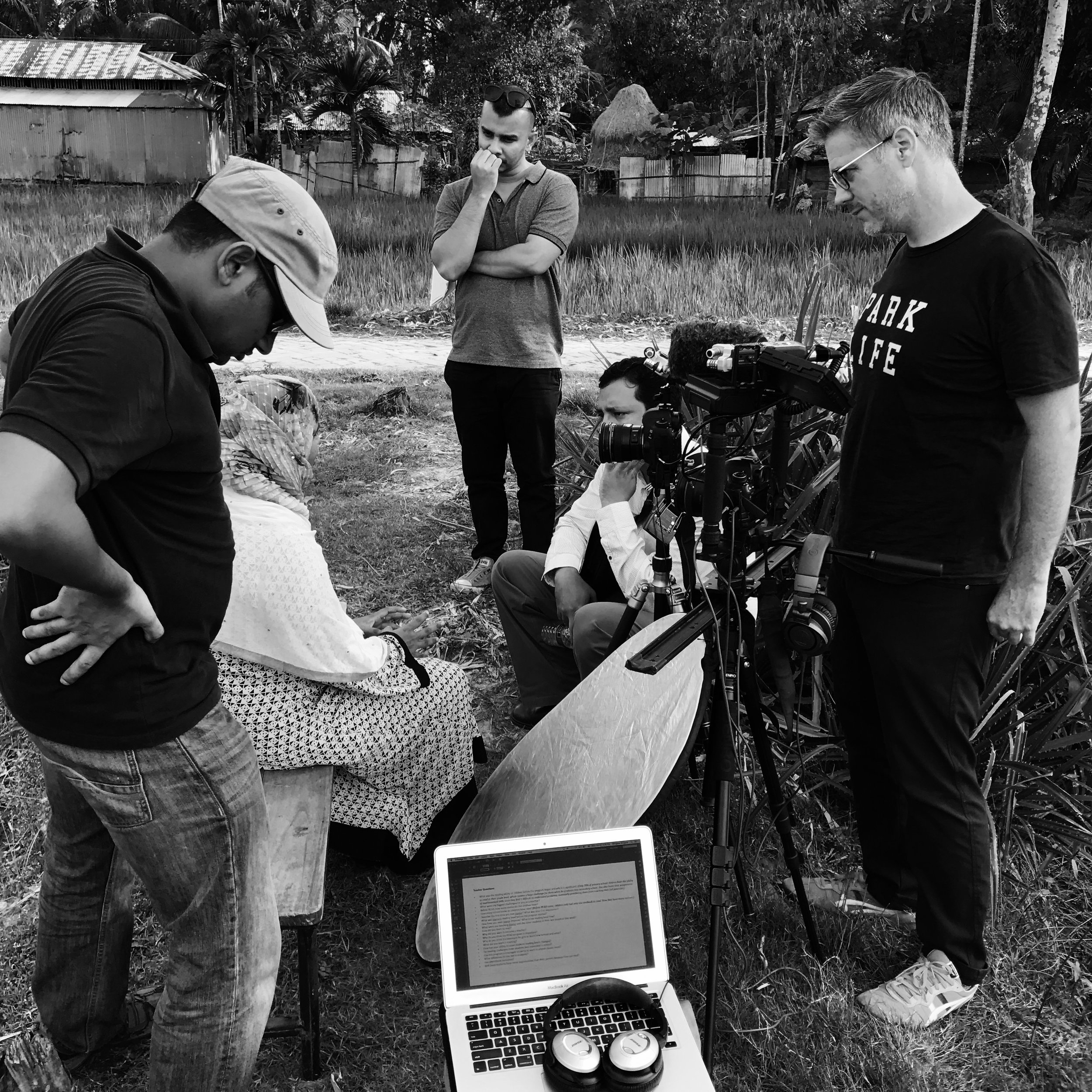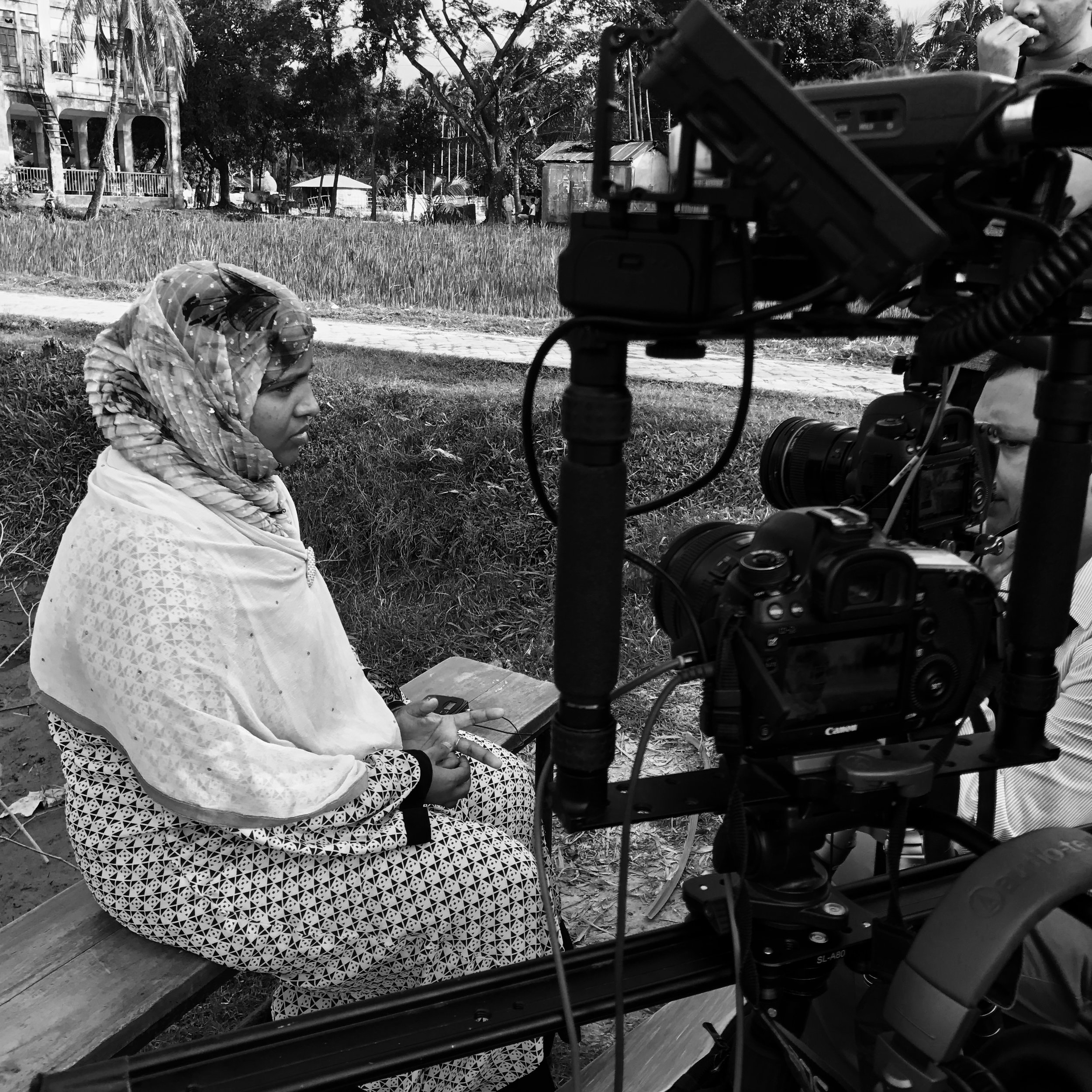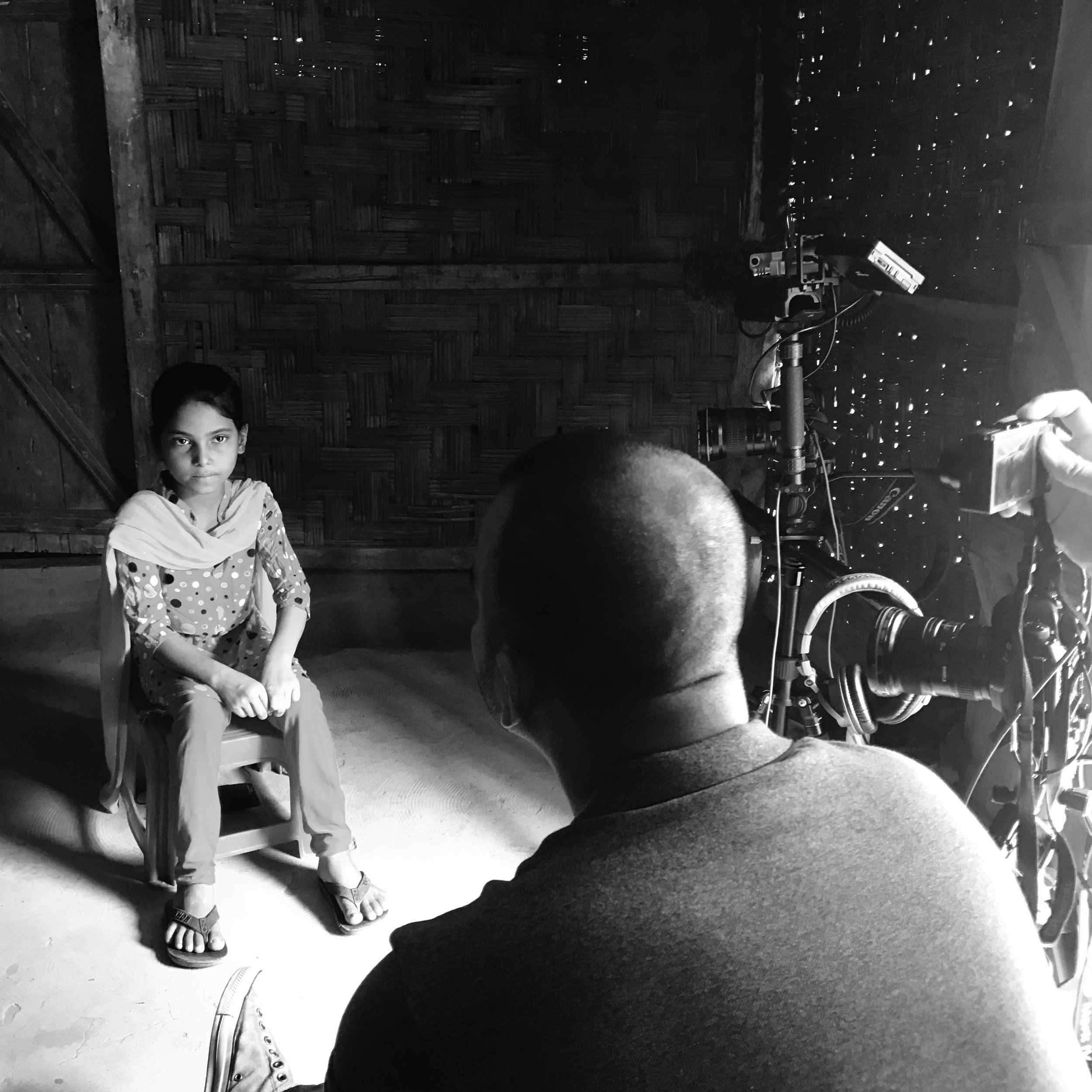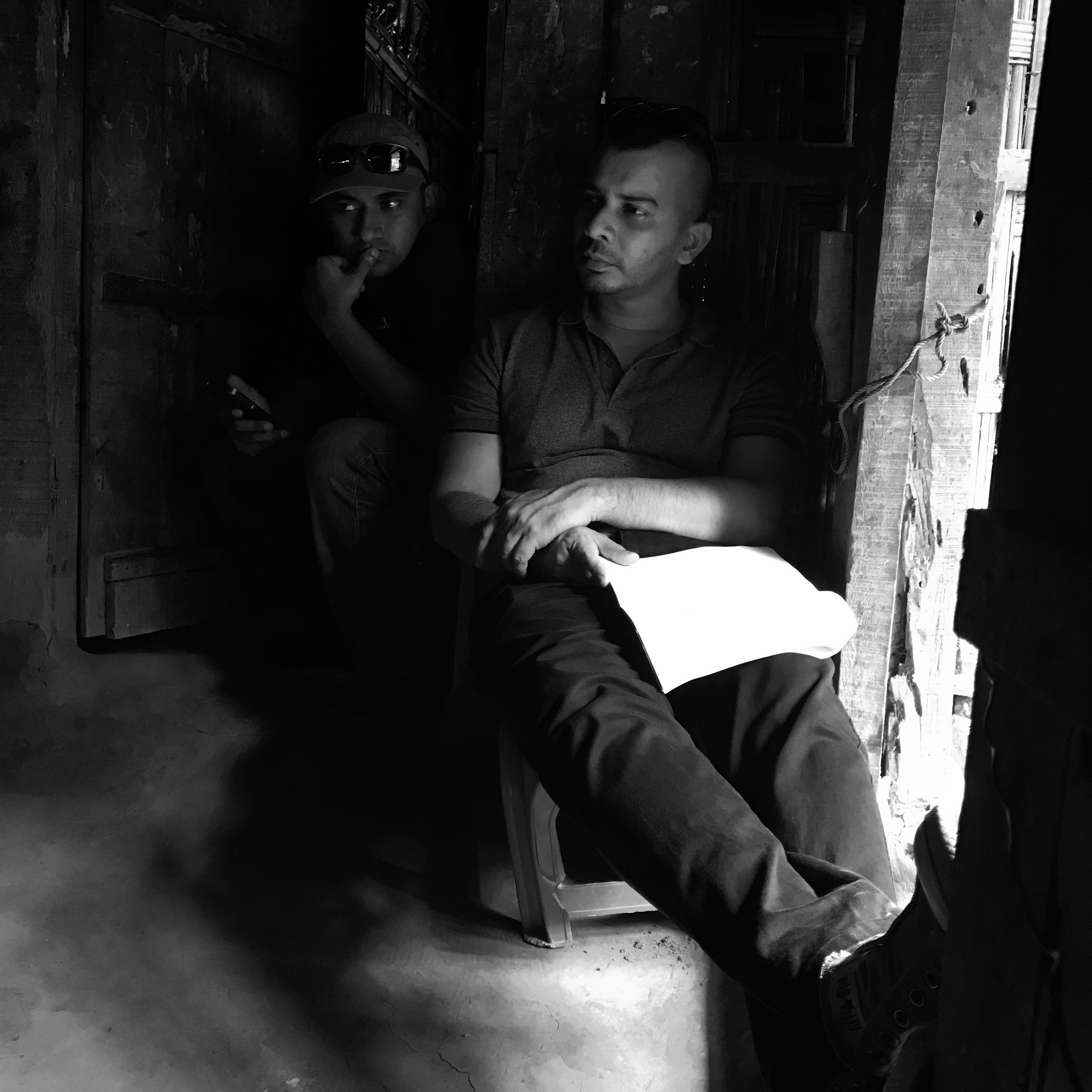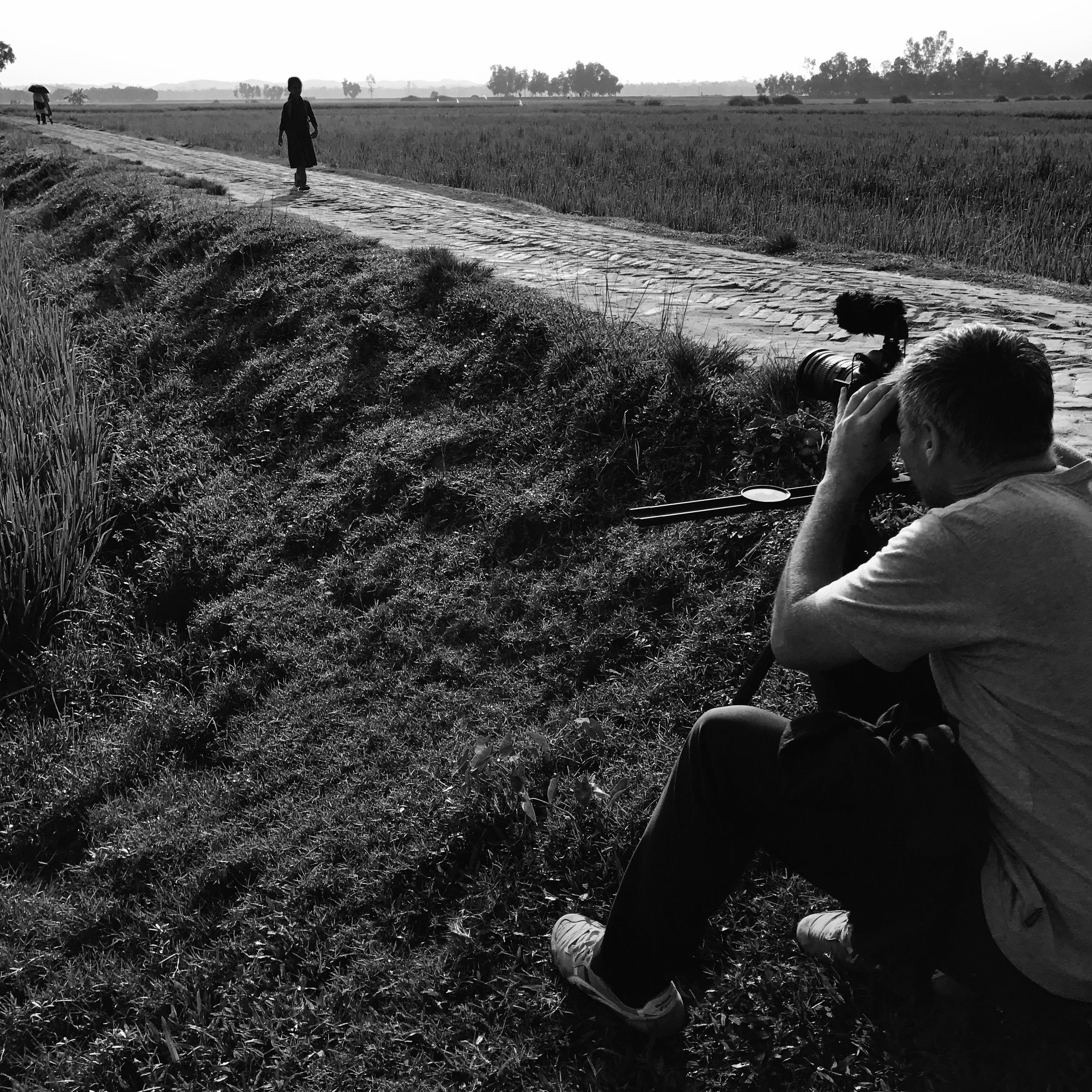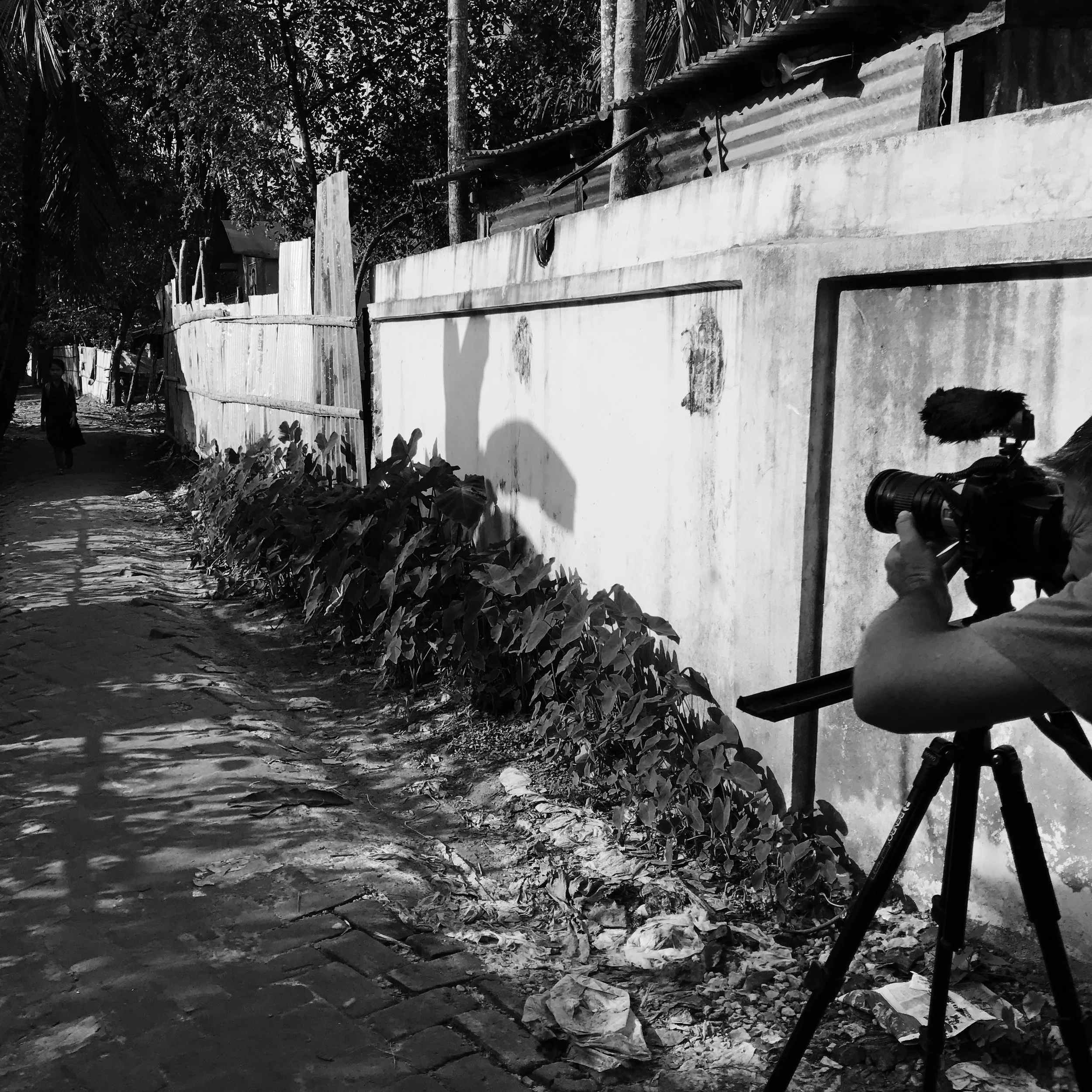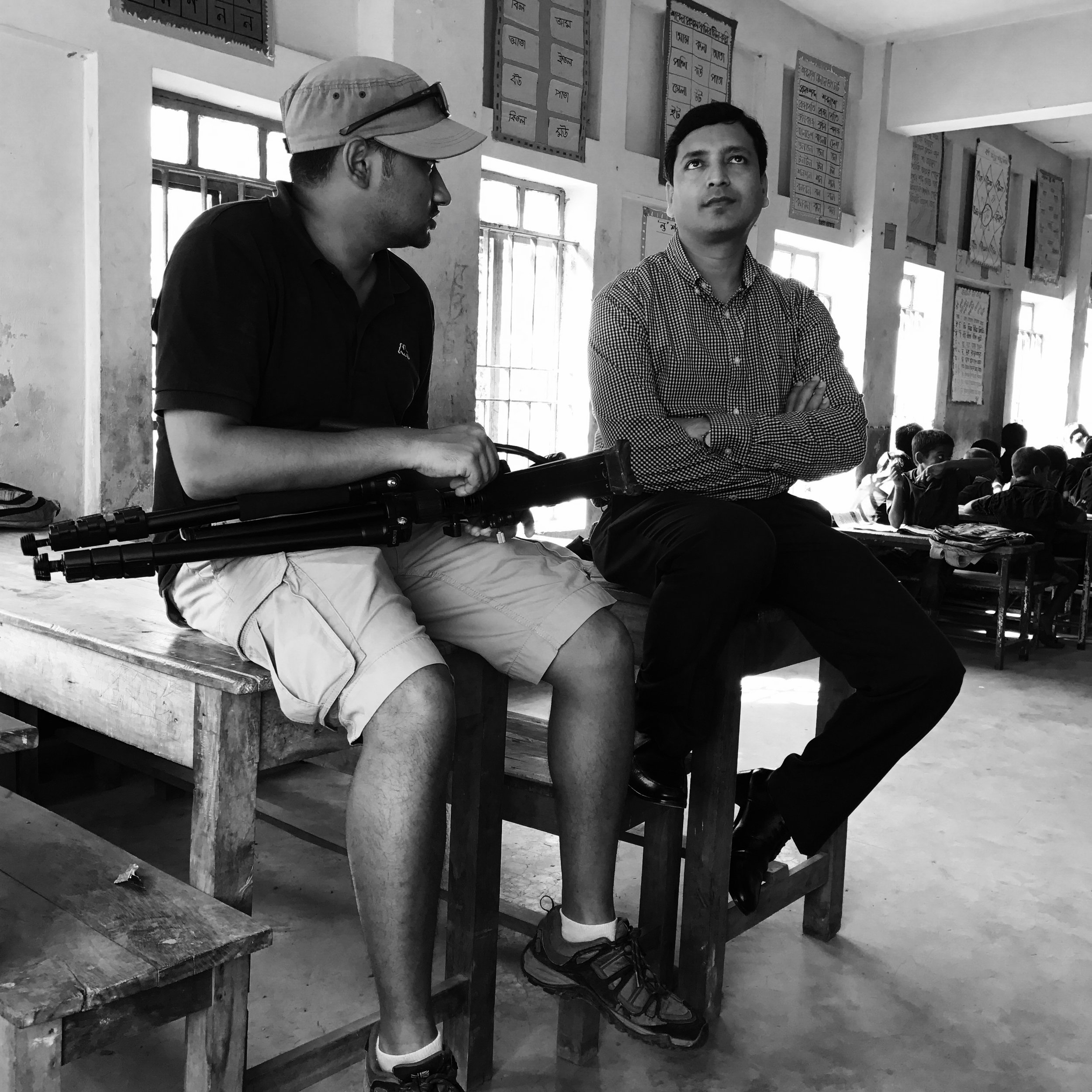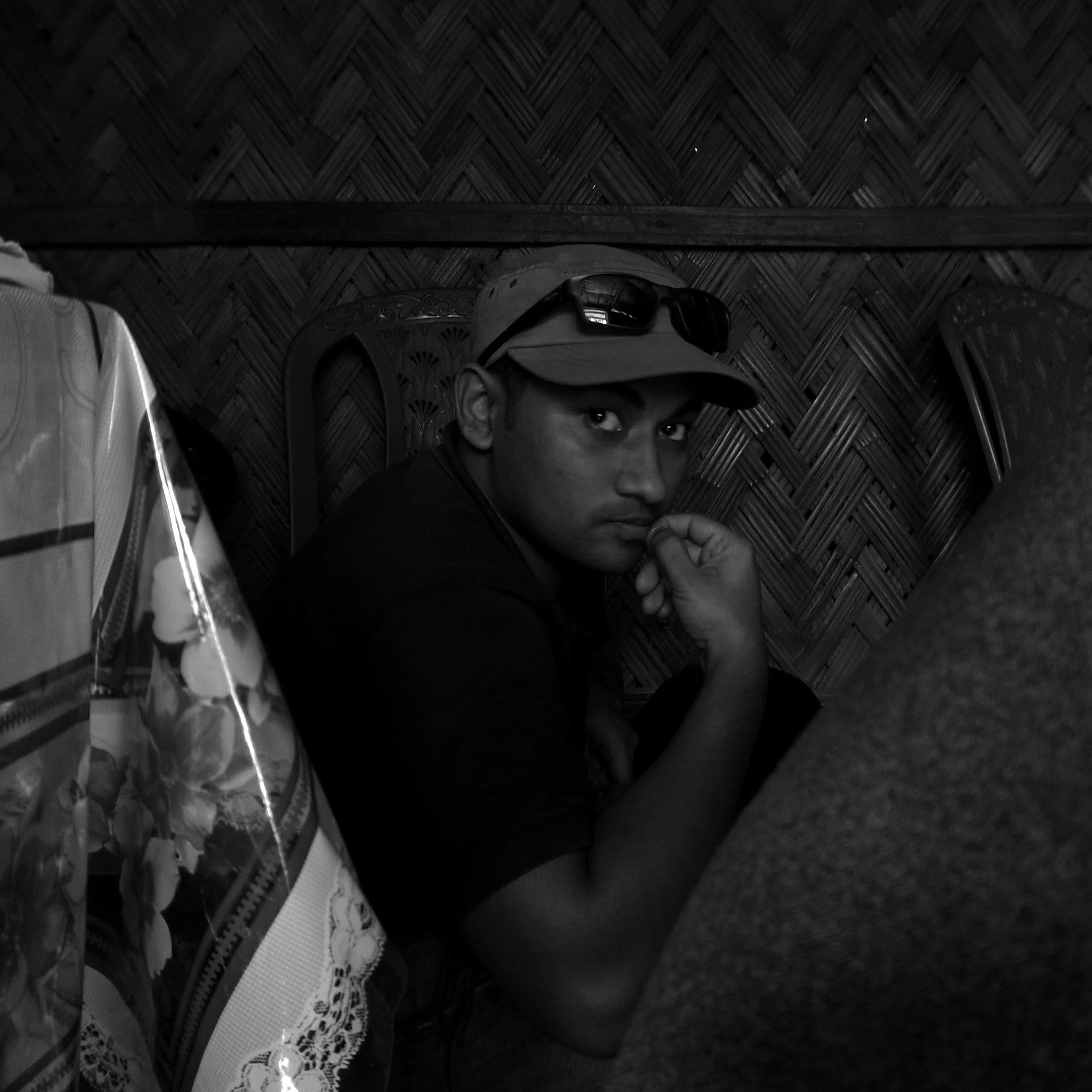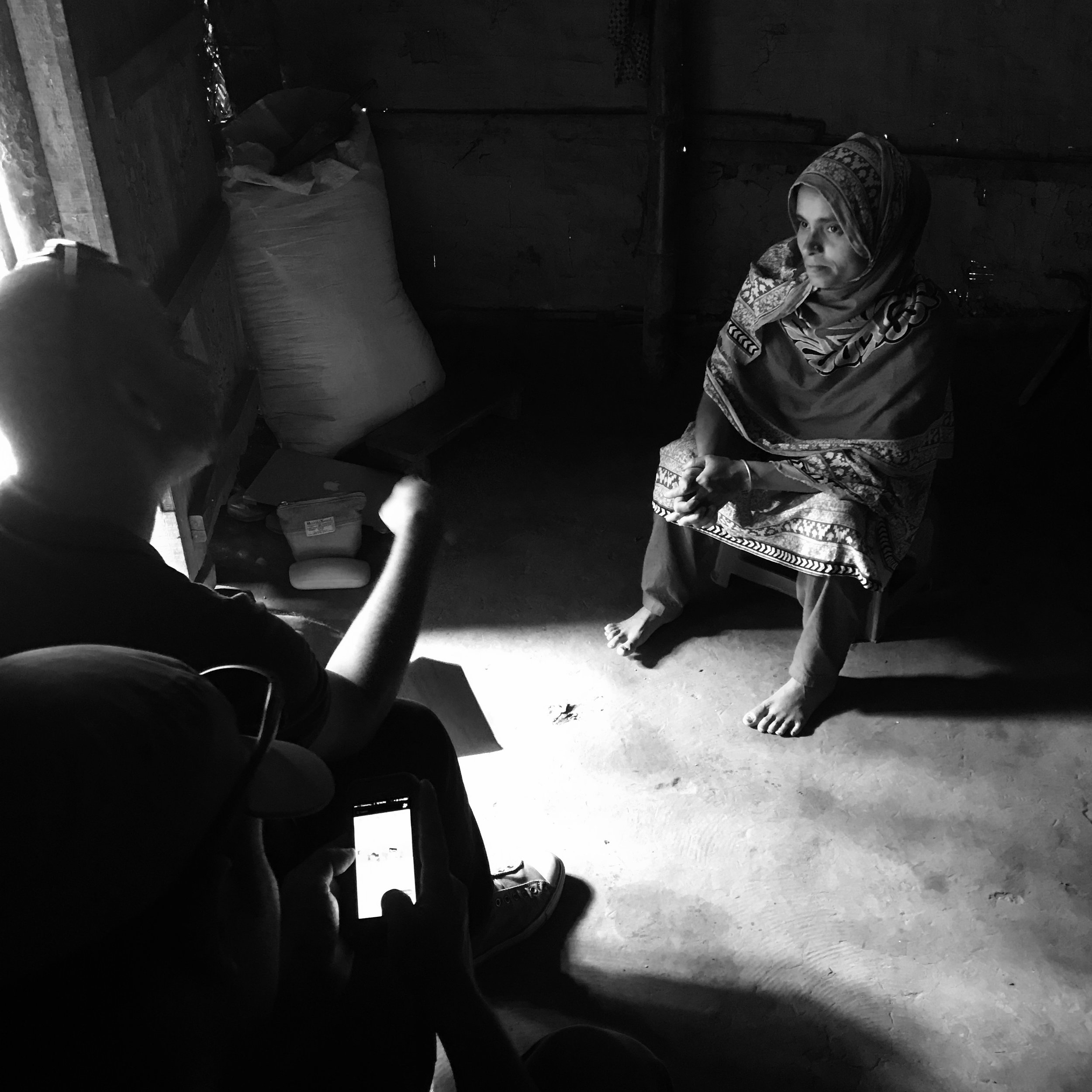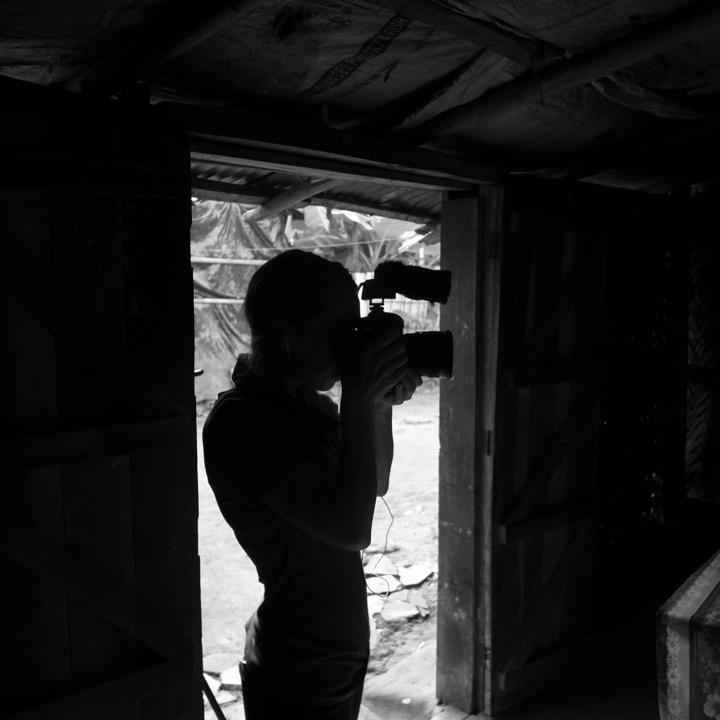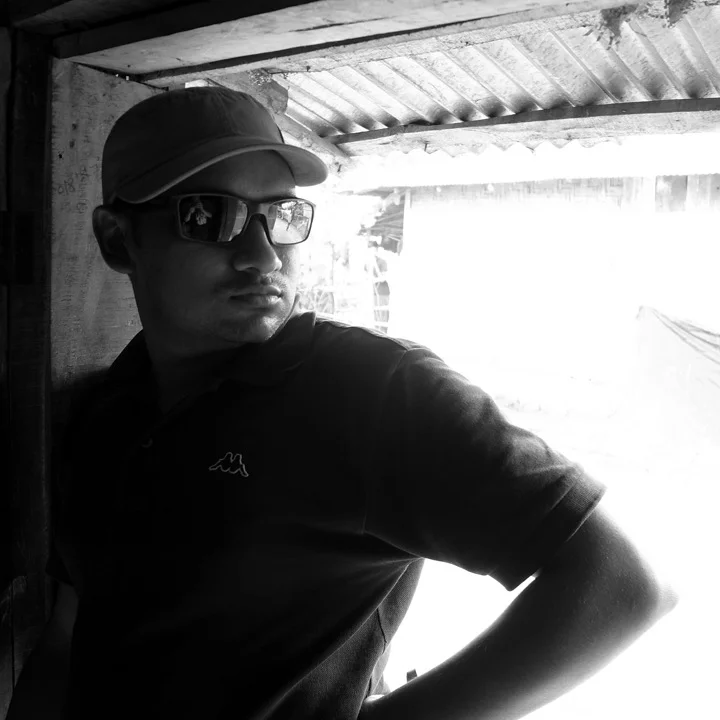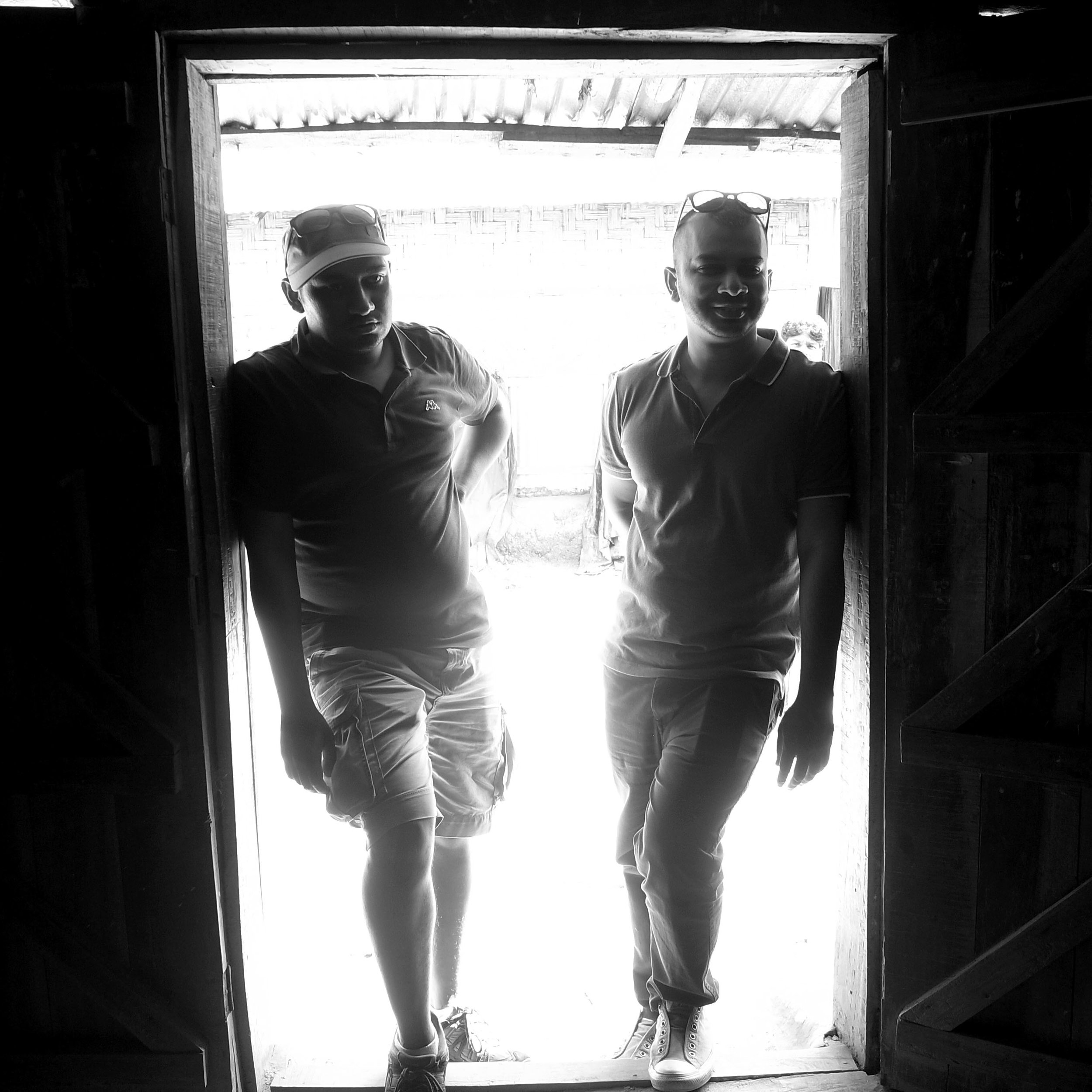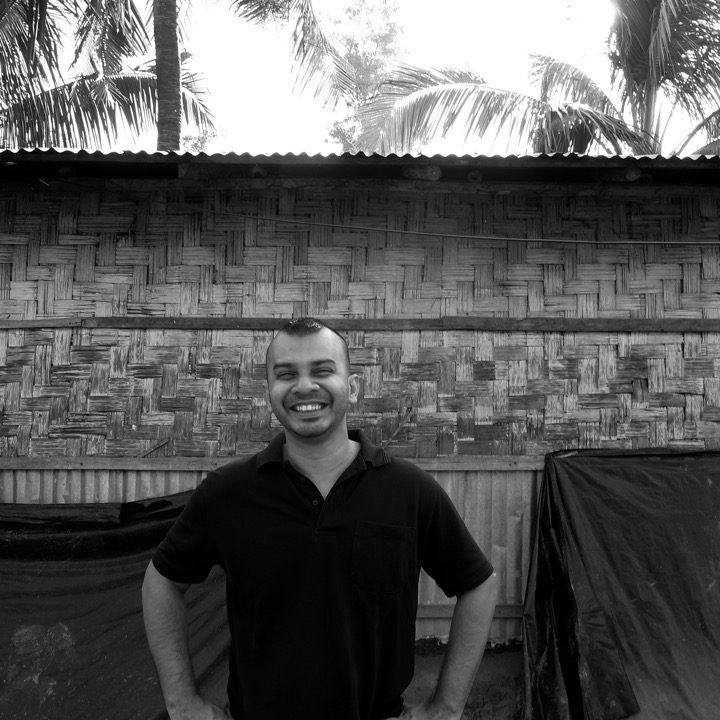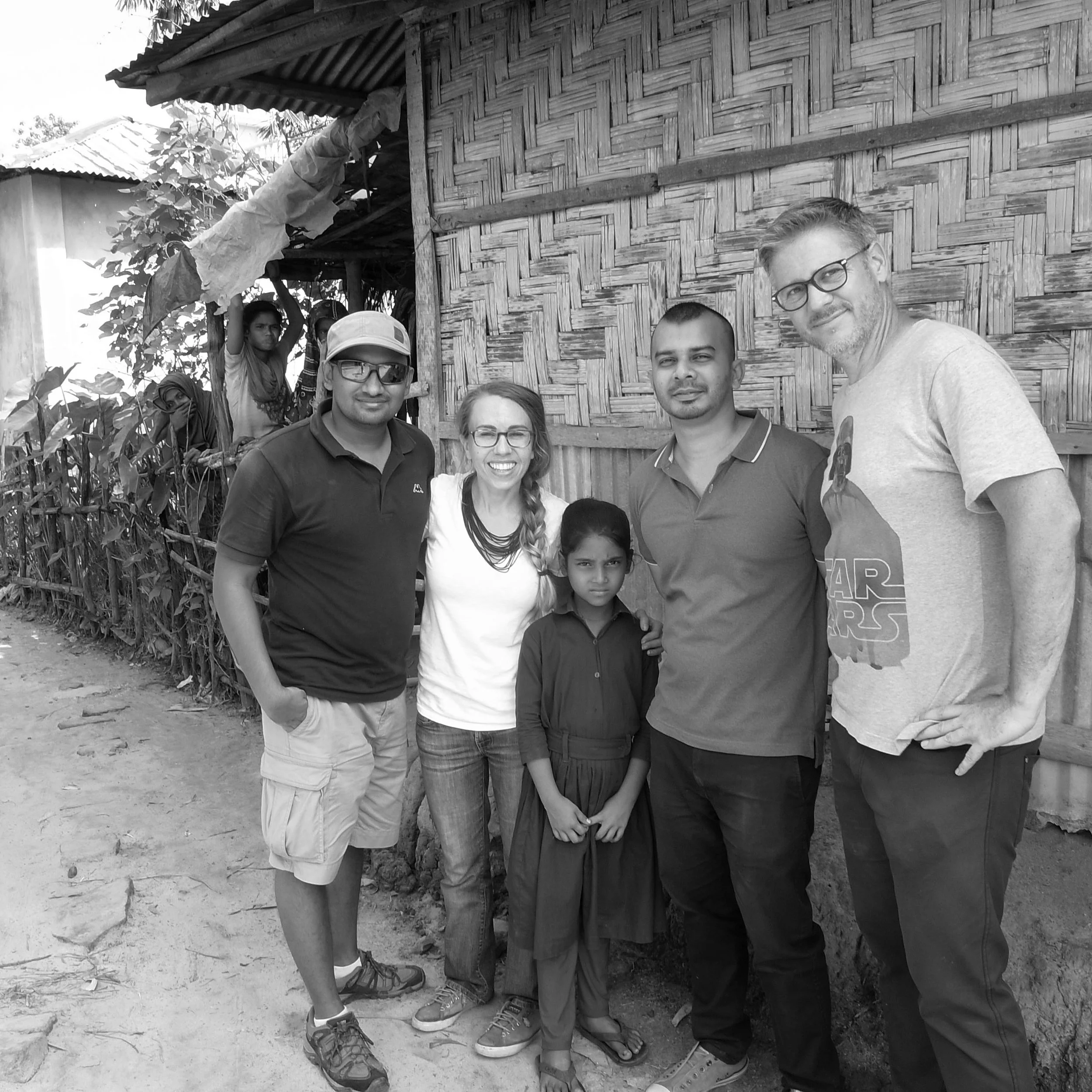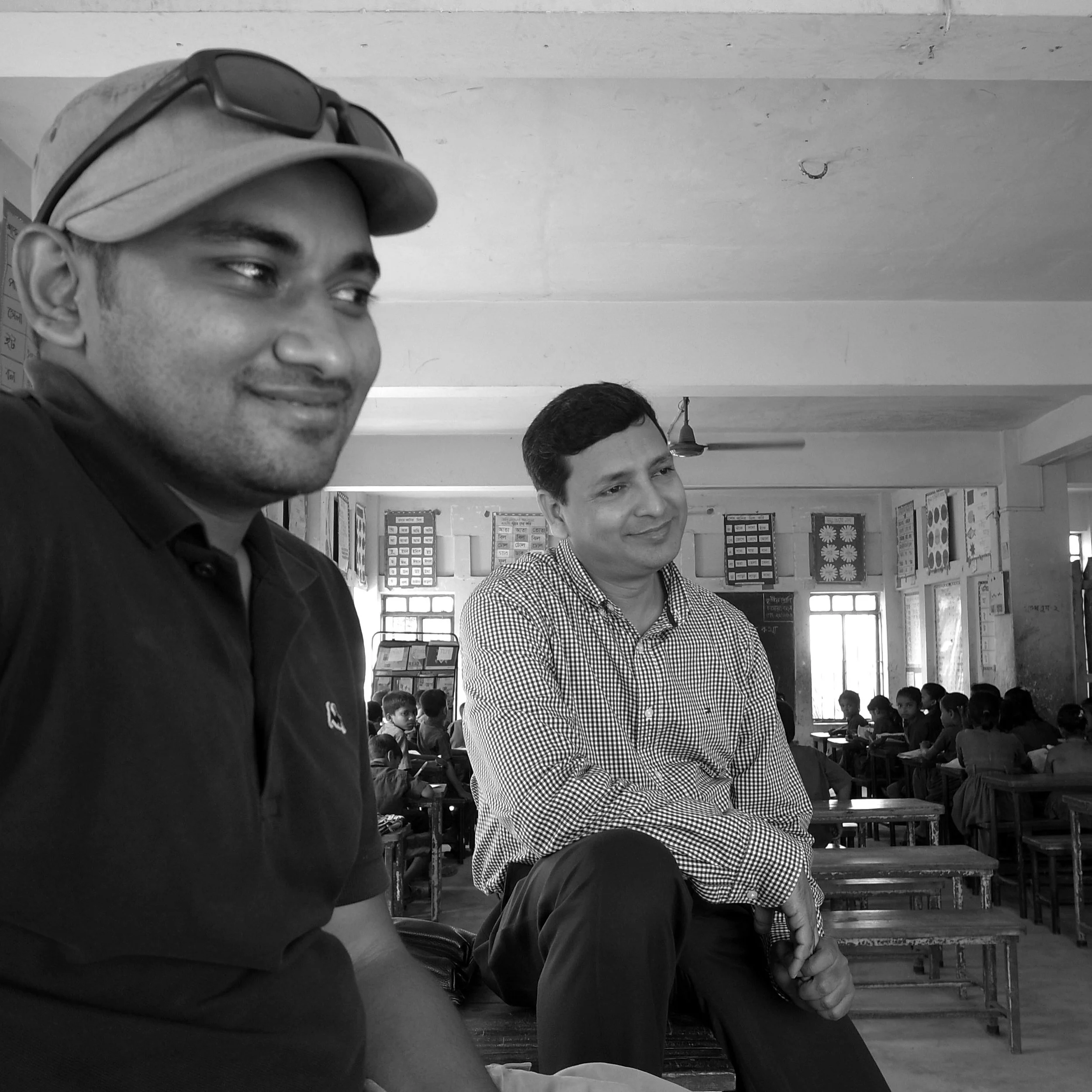"My father was very poor. Owing to financial crisis, he couldn’t manage to afford my studies after class 5," Shahena Akter explains. Shahena, mother of 3, lives in Nandakhali Juarinala village in Cox's Bazar—a seaside district in Southern Bangladesh."
Bangladesh has one of the largest primary education systems in the world with close to 20 million primary school aged children. However, only 10% of primary school children have the ability to read at their grade level.
Furthermore, many girls marry young and leave school to have children. "I got married when I was fourteen years old. After we married he got a job as a day laborer. He goes to work at 7am. It’s nightfall before he returns," she continues. "I work at home. Sometimes I work as a day laborer in the paddy fields with my husband to make an income for the family. What we make together as a family, it’s difficult for us to get by."
"I don’t want my daughter, Joynur, to suffer like me—she should have a different life."
USAID's flagship Reading Enhancement for Advancing Development (READ) project in Bangladesh is striving to do just that by improving early grade reading competence by providing extra-curricular activities to increase learning skills, strengthen community involvement in school management activities, and training primary school teachers to use proven, successful teaching methods to ensure greater literacy and critical thinking skills in Bangladeshi youth.
Hasina, a teacher at Nondakhali Primary School and one of 3,020 teachers trained on improved reading instruction throughout the country explains, "There are very few students in Bangladesh who can read. Those who can read cannot comprehend. As a result they are loosing interest in their studies or they are not able to continue with their studies at a later stage."
"When Joynur first started school she was very quiet, but she was eager to learn," Hasina remembers. However, her school didn't have enough books to read so she couldn't improve. There were only 3 books for the entire school.
When the READ program began at Joynur's school 2 years ago, they setup a book library. Outside the school, they started a Community Learning Camp where students have an opportunity to read and learn through interactive activities in an open environment surrounded by educational visuals.
"At the reading camp, we draw pictures, sing songs, and talk to each other and we all read books together," explains Joynur.
Hasina has noticed Joynur's improvement. "Joynur can now read and comprehend very well. As a result she is participating in all school activities."
At home, Joynur helps her younger brother and sister with their studies, reads with her mom, and helps her dad with his accounting.
When she grows up she wants to become a teacher.
Hasina sums it all up: "It is especially important for women to be educated because today’s girls are tomorrow’s mothers (and) only an educated mother can create a well-educated nation."
Over 150,000 children have benefitted in READ-supported schools throughout Bangladesh.
Client: USAID Bangladesh
Initiative: READ
Partner: Save the Children International
Subject: Joynur Jahan Joba, 10
Location: Cox's Bazar, Bangladesh
Trailer
BEHIND-THE-SCENES
The Challenge: USAID Bangladesh approached us to create a film about their impact on education to use as a fundraising tool with the U.S. Congress and the American people to petition for continued financial support.
Although primary school enrollment in Bangladesh has increased, the quality of education remains low. Almost forty percent of all children who enroll in first grade fail to complete primary school, and only 2 percent of children achieve all prescribed competencies by the completion of fifth grade. USAID helps coordinate efforts among government and donors to maximize the impact of education initiatives and help children succeed early on in their education. By remaining in school, the country’s youngest generation is more likely to contribute to a prosperous future.
They wanted to focus on their flagship Reading Enhancement for Advancing Development (READ) project in Bangladesh which is striving to improve early grade reading competence by providing extra-curricular activities to increase learning skills, strengthen community involvement in school management activities, and training primary school teachers to use proven, successful teaching methods to ensure greater literacy and critical thinking skills in Bangladeshi youth.
Their program implementors provided a selection of their top students around the country who could potentially be the subject of our film. Our local logistics coordinator called each of these students and conducted pre-interviews before we arrived. Based on their answers, we selected the candidate with the most compelling story who could also tell the bigger story of the program through her experience.
The Insight: Educating girls changes their future.
The Solution: Approach the story from the mother's perspective and how her daughter's life will be different from hers because of one thing: education.
We traveled to Cox's Bazar in southern Bangladesh and met Joynur, 10, and her mother Shahena, 24, who had to stop school at grade 5. We also interviewed Joynur's teacher, Hasina, to provide the larger context in Bangladesh and an overview of the program. We focused on Joynur and filmed her at home and at school over the next couple days.
Local Logistics Coordinator: Salman Saeed
Videography: Josh Estey / Morgana Wingard
Photography: Josh Estey / Morgana Wingard
Editing: Sarah Grile










